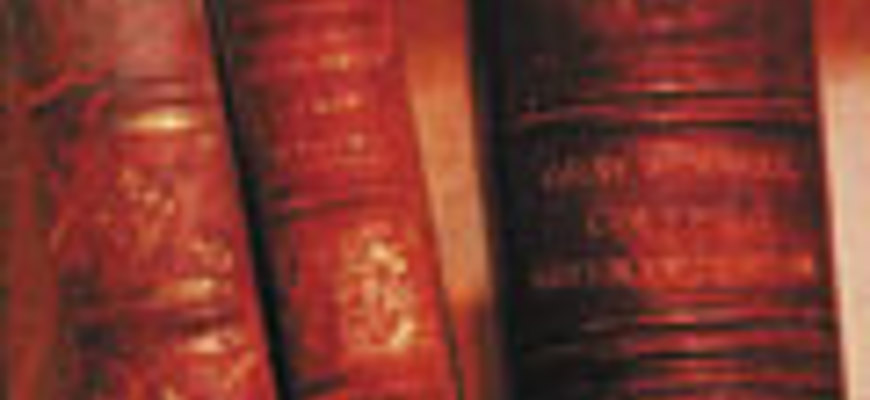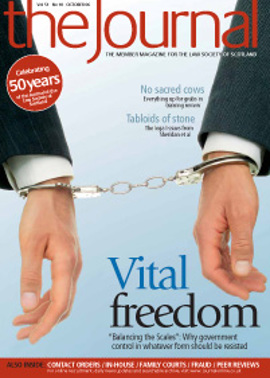Book reviews

This small book has been carefully written by Professor Roddy Paisley, who admits that it is based on the original version written by A E Anton (and subsequently revised by D J Cusine), and who has generously donated his fee to a charity assisting in training lawyers in Sri Lanka.
While sections of the book (particularly those dealing with rights of way) have been taken directly from the original, quite a lot of material has been added, particularly in connection with the brand new access rights, which now allow us to wander everywhere (outside of the towns) short of the landowner’s household “curtilage”, a term I expect to be hearing a lot of in the courts, if not in the countryside.
In the beginning, man walked freely on the face of the earth, unhindered by drystane dykes, electrified fences or other obstructions. Gradually his right to do so was restricted by the application of brute force, legalised theft and barbed wire.
As the clans had their land stolen from them by grant of King or Act of Parliament, so it became necessary to evolve rights of way to allow people to get from one public place to another, whether it be a beach or a town or (perhaps, but probably not) the top of a Munro.
Professor Anton’s book previously dealt very thoroughly with the law of rights of way. This book repeats all that excellent advice and adds a good deal more, particularly on the subject of the new access rights, which will, I hope, allow me to stop carrying my trusty wire-cutters in my rucksack for dealing with unruly obstacles.
To a large extent, the access rights will do away with the need for rights of way, particularly in the countryside, although less so in the towns and villages of Scotland. The tops of hills are now legally within our reach and Professor Paisley explains why, in words which, although sometimes necessarily technical, are sufficiently clear to make the book reasonably accessible to the non-lawyer.
For anyone with a client who owns a bit of property, this book is essential reading, and could be used as the basis of a guide for landowning clients, virtually all of whom will be affected by the access rights, and the swelling hordes of hillwalkers, not to mention the modern pestilence of cyclists, none of whom seem to have purchased a bell, but whoosh up behind you, without advance warning, and complain when they fall over while trying to avoid the dog, often with hilarious results.
Percy Unna, who gifted most of Glencoe and the Five Sisters of Kintail to the National Trust, and who demolished even simple cairns as monstrous excrescences, would have hated the signposts and modern bridges which allow even granny to wander into the bog. But times change, and the need to allow easy access to the “iconic” hills (i.e. the ones everyone has heard of) has become pressing.
Scotways – and I have to declare a minor interest as a largely inactive member – does a remarkable job in allowing and encouraging access to the wilder areas of our beautiful land, and this book is the lawyer’s guide to the modern rights of the former trespasser (although a copy of the access code itself will also be needed and will, I hope, be included in future editions – only an introduction to the code is included at present).
At £10 including p & p, and given the clarity of the writing, the book will also be a useful companion for the lay rambler, and is small enough and cheap enough to fit comfortably into a Christmas stocking.
Brian D Allingham
In this issue
- TUPE passes the buck (1)
- Survival of the fittest? A reply
- Channels of communication
- Time to discard the PIPs
- Speaking in the public interest
- Education's Big Bang
- If you can't say anything nice...
- Lesbian families, parenthood and contact
- Keep it in the family
- End of the peer show
- New chambers challenges Faculty Services
- Cash without borders
- Fraud - the threat from within
- Note it down - or lose out
- Balancing privacy and data sharing
- Provoking argument
- To amend or not to amend?
- Purchases under test
- TUPE passes the buck
- Scottish Solicitors' Discipline Tribunal
- Website reviews
- Book reviews
- Law or regulation? The blurring gets more blurred
- Registers success with direct debit






